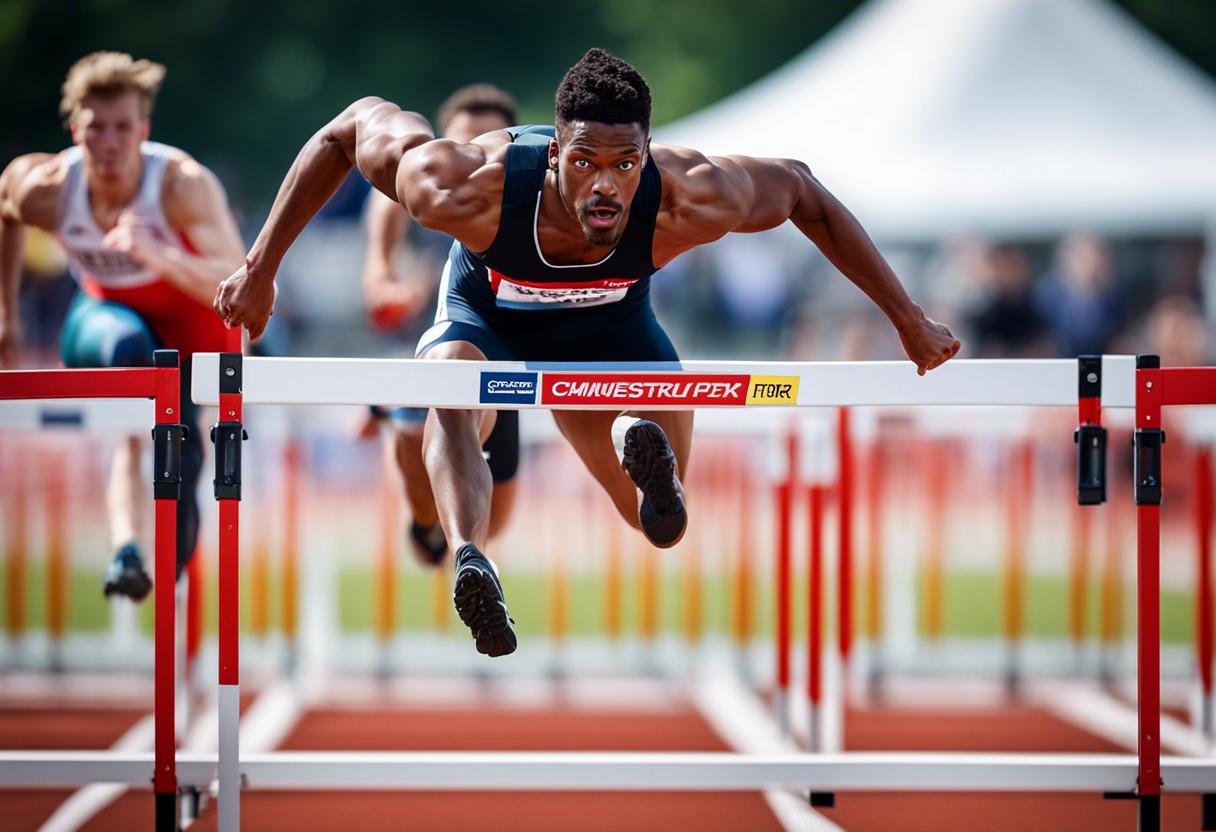In Rome on a Saturday night, all eyes at the Stadio Olimpico were on Irish medal prospect Sarah Lavin. Yet, her dream was shattered in the final; a stark reminder of how easily things can go awry. After winning her 100-metre hurdles semi-final superbly on day two of the European Championships, Lavin faltered in the ultimate showdown, clipped the second out of the 10 hurdles and began losing ground to the key contestants in the lanes to her outside.
Running in the fourth lane, the Irish athlete lacked rhythm and confidence, finishing seventh in 12.94 seconds, a significant drop from her 12.62-second personal best achieved last summer. Her face mirrored her deep disappointment.
Despite the setback for Lavin, the final saw a spectacular performance and remarkable quality. France’s Cyréna Samba-Mayela, the World Indoor champion in 60m hurdles, emerged victorious in 12.31 seconds, setting a European Championship record and a new personal best. Ditaji Kambundji from Switzerland, running in the eighth lane, secured second place in 12.40 seconds, whereas Poland’s Pia Skrzyszowska snapped up the bronze medal, achieving her personal best of 12.42 seconds.
Cindy Sember from Britain put up an impressive fight, finishing fourth in 12.56 seconds, her best of the season.
Disconcerted, Lavin admitted: “The second hurdle did me in, and I lost all momentum.” Her earlier performance in the first of three semi-finals had seen a win in 12.73 seconds, matching her season’s best and fueling hopes of a medal.
Lavin had previously expressed that a medal might require getting close to 12.50 seconds – faster than she’s ever achieved. As it turns out, all medal-winning times ended up well below 12.50. Lavin, already eligible for the Olympics, now shifts her focus to Paris.
Israel Olatunde, who had previously broken the Irish 100m record by clocking a time of 10.17 seconds at Munich in 2022, unfortunately fell short of his best performance this time, finishing sixth with a time of 10.40 inside the semi-finals for the 100m. His race was complicated, starting late due to a faulty start which required a complete re-race as half of the participating runners did not notice the restart gun.
His performance in the race was strong in the beginning but he faded in the closing 20m. The race was won by Romell Glave from Britain with a time of 10.11 seconds.
In a related development, Jakob Ingebrigtsen of Norway showcased another impressively strategic run to win the 5,000m, putting him halfway to achieving his third successive European 1,500m/5,000m double. He easily distanced himself from the group during the bell lap, racing to victory in 13:20.11.
Ireland’s Brian Fay, despite lagging behind Ingebrigtsen as they entered the final lap, managed a strong finish in the 5,000m, placing 14th with a time of 13:29.48.
It hasn’t been a full year since she broke Derval O‘Rourke’s 13-year long-standing Irish record at 12.62 seconds during the World Championships in Budapest the previous August, beating O’Rourke’s own 12.65 seconds from the 2010 European Championships in Barcelona. Her attention, like Fay, is now focused squarely on the upcoming Paris Olympics.

